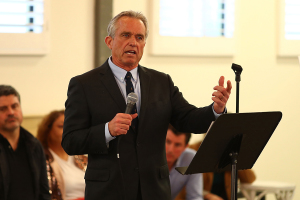Federal Judges Declare Abortion Laws Unconstitutional
Within one week, two abortion laws in Virginia and Mississippi have been declared unconstitutional by federal judges.
Within one week, two abortion laws in Virginia and Mississippi have been declared unconstitutional by federal judges.
On Wednesday, U.S. District Judge Tom S. Lee declared a Mississippi law prohibiting early second trimester abortions unconstitutional. The law required that abortions performed in the early second trimester be conducted in hospitals or outpatient surgical centers that are better equipped than abortion clinics. The law also prohibited abortion clinics from performing abortions past 13 weeks gestation.
The law was contested by New York’s Center for Reproductive Rights and the Jackson Women’s Health Organization, the only abortion clinic currently in operation in Mississippi.
On Friday, the 4th U.S. Circuit Court of Appeals panel ruled 2 to 1 in favor of a 2003 ruling that declared Virginia’s ban on late-term abortions unconstitutional. The Virginia law prohibited an abortion procedure called “partial birth abortion,” in which fetuses in the second or third trimester are partially delivered.
In 2003, U.S. District Judge Richard L. Williams declared the law unconstitutional, on the basis that it did not provide an exception in cases where a woman’s health is in danger.
In the appeals case, federal judges agreed with Williams’ decision. The one dissenting vote was by Judge Paul V. Niemeyer, who commented that getting rid of the ban essentially legalizes infanticide in the state.
The issue of including an exception for women’s health was also the major reason why the U.S. Supreme Court declared a Nebraska abortion law unconstitutional in 2000.
The U.S. Supreme Court recently agreed to review a case examining New Hampshire’s abortion parental notification law, the first abortion case to be reviewed by the high court since 2000. The decision will determine whether exceptions are required in abortion laws, and will set the standards for determining the constitutionality of such laws.




























